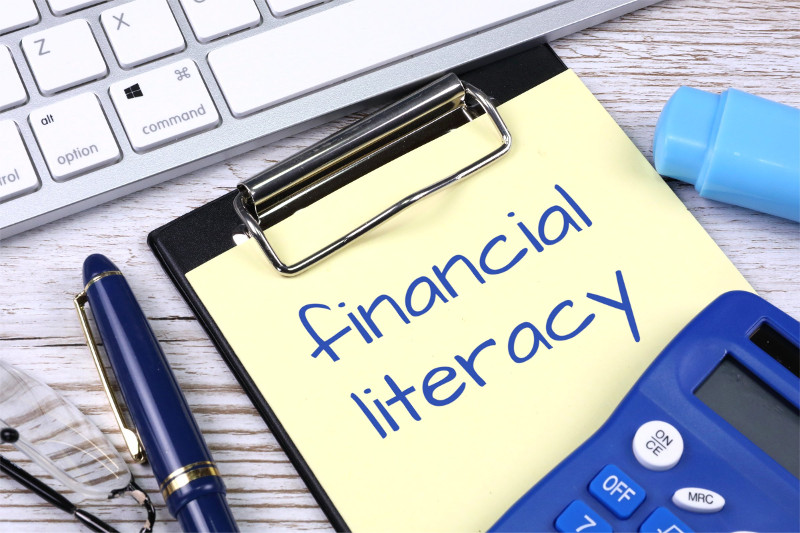Submitted by: Glen Izzard, CIM; Investment Advisor, Portfolio Manager
November is Financial Literacy Month in Canada, and there’s no better time to shine a spotlight on one of the most important lifelong skills: understanding money.
While many of us think about literacy in terms of reading and writing, financial literacy is just as critical. It shapes how we earn, save, spend, invest, and plan for the future. In fact, it may be one of the greatest assets you and your family can develop.
The good news?
Improving financial literacy doesn’t require big leaps or complex courses. Instead, it’s about building everyday habits and passing those lessons down to the next generation.
Here are a few ways to strengthen your money skills — and help others in your family do the same.
Why Financial Literacy Matters
When people feel confident about money, they make better decisions. Financial literacy helps us avoid debt traps, build emergency savings, invest wisely, and prepare for milestones like buying a home or retiring.
Without it, even high earners can struggle to manage their finances.
Think of financial literacy as a toolkit. The more tools you have — budgeting, saving, understanding interest rates, or knowing how investments work — the better equipped you are to handle life’s opportunities and challenges.
Practical Tips to Build Everyday Financial Confidence
1. Track Where Your Money Goes.
Awareness is the first step to control. For one month, record all your expenses — every coffee, every bill, every subscription. At the end, you’ll see patterns that reveal where you can cut back or redirect funds to savings.
2. Build an Emergency Cushion.
Unexpected expenses are a fact of life. Aim to set aside at least three months’ worth of expenses in an easily accessible account. Even if you start with $20 a week, the discipline of saving regularly is more important than the amount at the beginning.
3. Automate Good Habits.
Set up automatic transfers into savings or investment accounts. By ‘paying yourself first’, you remove the temptation to spend money that could be building your financial future.
4. Learn the Basics of Credit.
Credit cards, lines of credit, and loans can be useful, but only if you understand how they work. Pay balances in full whenever possible, and be mindful of interest rates. A strong credit score can make a big difference in future opportunities like qualifying for a mortgage.
One of the best gifts parents can give their children is a solid foundation in money management. Teaching financial literacy early helps young people avoid costly mistakes later in life.
Here are a few age-appropriate ideas:
- Young Children (ages 5–10): Use a clear jar for savings so kids can see their money grow. Offer small allowances tied to chores and encourage them to divide money into ‘spend’, ‘save’, and ‘share’ categories.
- Pre-Teens (ages 11–13): Open a youth savings account and show them how interest works. Give them small budgets to manage — like buying ingredients for a family meal within a set dollar amount.
- Teenagers (ages 14–18): If they have a part-time job, teach them about taxes, pay stubs, and the importance of saving a percentage of every paycheque. Discuss the basics of credit and explain why paying off balances is crucial.
Tip for Parents
Don’t shy away from talking openly about money. Family discussions about budgeting, saving for a trip, or comparing grocery prices provide real-life lessons that last far longer than abstract lectures.
Financial literacy doesn’t happen overnight — it grows with practise.
By tracking spending, automating savings, and sharing lessons with children, families build a culture of financial confidence. These small steps add up to long-term security, less stress, and more freedom to enjoy life.
This November, take time to review your financial habits and explore one or two ways you can strengthen them. And if you have children or grandchildren, use this month as a reminder that financial education is one of the most valuable gifts you can pass on.
Financial literacy truly is your greatest asset. It’s the foundation for stability, opportunity, and peace of mind — not just for you, but for generations to come.
About Glen Izzard
Based in Meaford, Ontario, Glen Izzard is a Chartered Investment Manager (CIM®) and Discretionary Portfolio Manager with over 15 years of experience helping clients navigate investing, cash flow, estate planning, and retirement transitions.
Known for his client-first approach, Glen focuses on building clarity, confidence, and long-term results. An active community supporter, he serves as treasurer for the Meaford Chamber of Commerce and as Assistant Coach with Georgian Bay Lightning Hockey. Glen’s mission is simple: provide thoughtful guidance, practical strategies, and a steady hand so clients can stay on course — financially and in life.
Please Contact: (226) 909-8688












